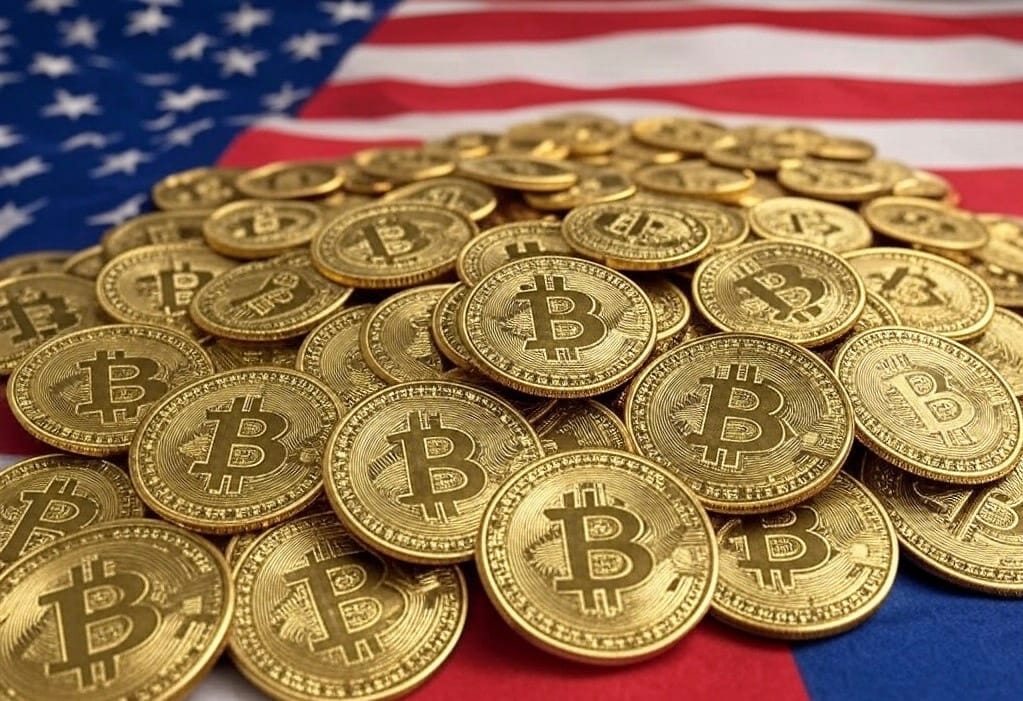Trump Confirms Bitcoin Reserve Strategy, Could Propel Crypto to New Heights

In a surprising twist that has sent shockwaves through the financial world, former President Donald Trump has not only embraced the cryptocurrency space but has promised a strategic move that could redefine America's economic landscape. His recent comments on CNBC have sparked a frenzy among investors and traders, hinting at a potential $15 trillion price boom for Bitcoin.
"We're gonna do something great with crypto because we don’t want China, or anybody else … but others are embracing it, and we want to be ahead," Trump told CNBC. "Yes, I think so," Trump said in response to a question about whether the U.S. will create a Bitcoin strategic reserve similar to its oil reserve.
Trump's enthusiasm for Bitcoin isn't new, but his latest statements suggest a more concrete plan. He has openly discussed the idea of establishing a U.S. Bitcoin strategic reserve, mirroring the country's oil reserves. This move would aim to keep the U.S. ahead in the rapidly evolving digital currency race, especially as nations like China and now Russia look to leverage cryptocurrencies in their economic strategies.
The Political and Economic Implications
The implications of such a policy are profound. Trump's vision aligns with his previous comments at the Bitcoin 2024 conference, where he foresaw Bitcoin potentially surpassing gold’s total value. This isn't just about financial speculation; it's about securing national economic interests in an era where digital assets are becoming increasingly significant. By creating a Bitcoin reserve, the U.S. could not only stabilize its own digital economy but also position itself as a leader in global cryptocurrency regulation and innovation.
This initiative has been further emphasized by actions in Congress, where Senator Cynthia Lummis introduced the BITCOIN Act. This legislative proposal aims at having the U.S. government purchase 1 million bitcoins over five years, an ambitious plan meant to address the ballooning national debt. The strategy here is clear: invest in an asset with a fixed supply, potentially leading to a significant appreciation in value, thus reducing the relative burden of national debt.
The global context adds another layer of urgency to this strategy. Russia's interest in a similar reserve comes after President Vladimir Putin's acknowledgment of Bitcoin as a viable alternative to traditional foreign currency reserves. This move was partly prompted by Western sanctions that froze Russia's access to its foreign reserves, highlighting the geopolitical risks of relying solely on fiat currencies.
The market reaction to Trump's statements has been immediate and dramatic. Bitcoin has soared past $100,000, fueled by "FOMO" - fear of missing out. This surge is not just about speculation; it's a reflection of a broader recognition of Bitcoin's potential as a hedge against inflation and currency devaluation, especially in light of looming debt crises warned by influential figures like billionaire investors.
Perianne Boring, a key voice in the crypto industry, has been vocal about the potential outcomes if Trump's plans come to fruition. She points to the 'stock-to-flow' model, which predicts an exponential rise in Bitcoin's value due to its capped supply. If these predictions hold, we could see Bitcoin's valuation skyrocket to over $800,000 per coin by the end of next year, vastly increasing its market cap from the current $2 trillion to around $15 trillion.

